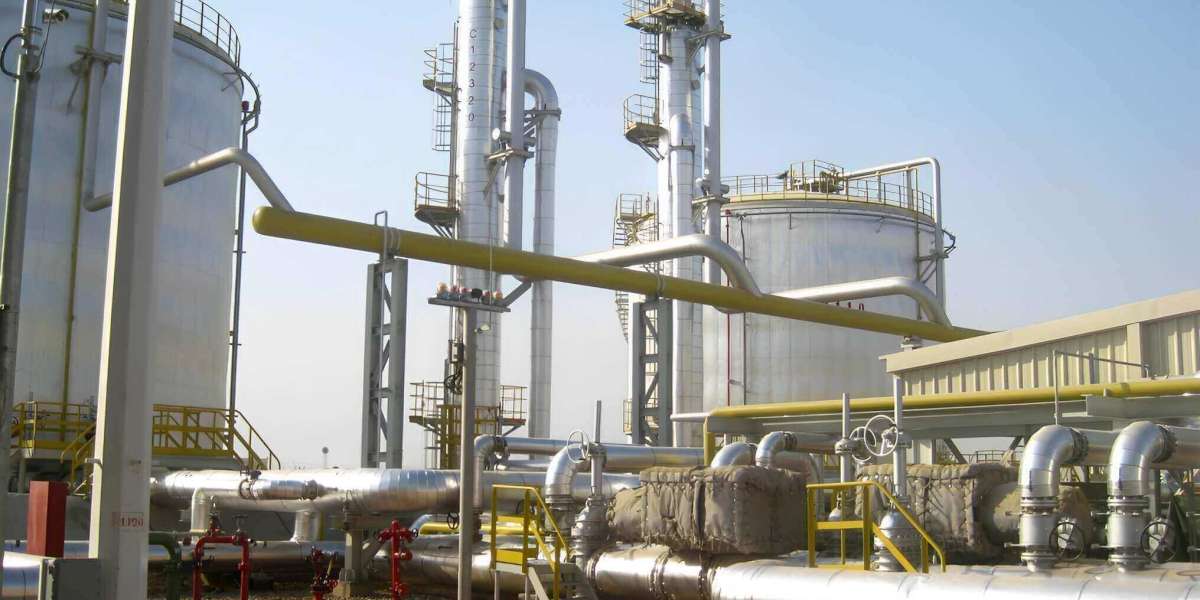Iraq's energy sector represents one of the most critical pillars of the nation's economy, with Oil and Gas Construction Companies in Iraq playing an indispensable role in developing and maintaining the infrastructure that drives this vital industry. These specialized construction firms are tasked with building complex facilities, pipelines, refineries, and processing plants that form the backbone of Iraq's petroleum sector. The expertise required for such projects demands a unique combination of technical knowledge, safety protocols, and understanding of the challenging operational environment that characterizes Iraq's energy landscape.
The Strategic Importance of Energy Infrastructure
Iraq possesses some of the world's largest proven oil reserves, making the development of robust energy infrastructure paramount to national economic stability. The construction of oil and gas facilities requires specialized expertise that goes far beyond traditional building projects. These installations must withstand extreme environmental conditions, meet stringent safety standards, and operate continuously under demanding circumstances.
The complexity of energy infrastructure projects necessitates advanced engineering solutions, from sophisticated pipeline networks that transport crude oil across vast distances to state-of-the-art refineries that process raw materials into valuable petroleum products. Every project needs to be carefully planned, carried out, and maintained continuously to guarantee peak performance and safety adherence.
Specialized Construction Challenges
Energy sector construction projects present unique challenges that require specialized knowledge and equipment. The harsh desert climate, with its extreme temperature variations and sandstorm conditions, demands construction materials and techniques specifically adapted to these environmental factors. Equipment must be protected from corrosive elements, and construction schedules must account for weather-related delays and safety considerations.
Pipeline construction, in particular, requires extensive expertise in welding, materials science, and terrain management. Projects often span hundreds of kilometers across diverse geographical conditions, from urban areas to remote desert locations. The logistics of managing such large-scale projects, including equipment transportation, workforce deployment, and materials supply, requires sophisticated project management capabilities.
Safety and Regulatory Compliance
Among the construction industries, the oil and gas sector is subject to some of the strictest safety laws. Companies must maintain comprehensive safety management systems that address fire prevention, explosion risks, chemical exposure, and environmental protection. Worker safety training programs must cover specialized hazards unique to petroleum facilities, including confined space entry, gas detection procedures, and emergency response protocols.
Environmental compliance has become increasingly important, with construction projects required to minimize ecological impact while maximizing operational efficiency. This includes implementing waste management systems, air quality monitoring, and water conservation measures that protect local communities and natural resources.
Technological Innovation in Energy Construction
Modern energy infrastructure construction increasingly relies on advanced technologies that improve project efficiency and safety outcomes. Digital modeling and simulation tools enable engineers to optimize facility designs before construction begins, identifying potential issues and improving overall project performance. Automated welding systems ensure consistent quality in pipeline construction, while drone technology provides real-time monitoring of construction progress and safety compliance.
Remote monitoring systems integrated into new facilities allow for continuous performance tracking and predictive maintenance scheduling. These technological advances not only improve operational efficiency but also extend facility lifecycles and reduce long-term maintenance costs.
Economic Impact and Job Creation
The energy construction sector has significant economic multiplier effects throughout Iraq's economy. Large-scale projects create employment opportunities for skilled workers, engineers, project managers, and support personnel. Local procurement policies ensure that construction projects contribute to regional economic development through partnerships with Iraqi suppliers and subcontractors.
Training and skills development programs associated with major construction projects help build local technical capacity, creating a skilled workforce that supports ongoing industry growth. These educational initiatives transfer valuable knowledge and expertise that benefits both current projects and future energy infrastructure development.
International Partnerships and Knowledge Transfer
Many energy construction projects in Iraq benefit from international partnerships that bring global expertise and advanced technologies to local projects. These collaborations facilitate knowledge transfer, introduce best practices, and ensure that Iraqi facilities meet international standards for safety, efficiency, and environmental performance.
Joint venture arrangements between international firms and local companies create opportunities for Iraqi professionals to gain experience with cutting-edge construction techniques and project management methodologies. This knowledge transfer helps build long-term capacity within Iraq's energy construction sector.
Future Outlook and Development Opportunities
The outlook for Iraq's energy infrastructure development remains positive, with significant investment planned for facility upgrades, pipeline expansions, and new processing capacity. Emerging technologies, including renewable energy integration and carbon capture systems, are creating new opportunities for specialized construction expertise.
The modernization of existing facilities presents substantial opportunities for construction companies with experience in retrofit projects and technology upgrades. These projects require careful coordination to maintain operational continuity while implementing improvements and expansions.
Conclusion
The vital role played by Oil and Gas Construction Companies in Iraq cannot be overstated in the context of national economic development and energy security. As Iraq continues to modernize its energy infrastructure and expand production capacity, the demand for specialized construction expertise will continue to grow. The success of these projects depends on companies that combine technical excellence with deep understanding of local conditions and regulatory requirements, ensuring that Iraq's energy sector remains competitive in the global marketplace.








